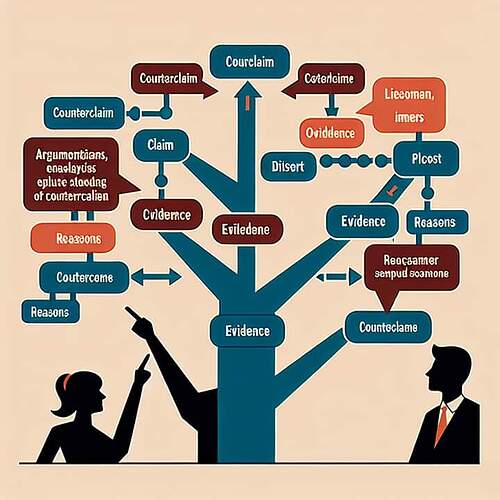when analyzing an argument, which elements should you focus on most? select three options. counterclaim claim reasons dissent evidence
When analyzing an argument, which elements should you focus on most? Select three options: counterclaim, claim, reasons, dissent, evidence
Answer: When analyzing an argument, it’s crucial to focus on certain key elements to understand the argument’s structure and effectiveness. Among the options provided, the three most important elements to consider are:
-
Claim:
- Definition: The claim is the main point or thesis that the argument is trying to prove. It is the central assertion that the writer or speaker wants the audience to accept.
- Importance: Analyzing the claim helps you understand what the argument is fundamentally about. It sets the stage for what the author intends to convince the audience of.
-
Reasons:
- Definition: Reasons are the supporting statements that explain why the claim is true. They provide the logic or rationale behind the claim.
- Importance: Evaluating the reasons allows you to see the logical foundation of the argument. It helps you assess whether the claim is supported by coherent and rational justifications.
-
Evidence:
- Definition: Evidence includes the data, facts, statistics, examples, and quotations that are used to support the reasons. It provides the actual proof for the argument.
- Importance: Scrutinizing the evidence is essential because it determines whether the reasons are backed by credible and convincing information. Strong evidence strengthens an argument, while weak or irrelevant evidence can undermine it.
Why Not Counterclaim and Dissent?
-
Counterclaim:
- While analyzing the counterclaim (an opposing point of view) is important in advanced argument analysis, it is not as central as understanding the primary claim, reasons, and evidence when you are first breaking down the structure of an argument.
-
Dissent:
- Dissent refers to disagreement or opposition to the argument. While recognizing dissent is part of a comprehensive analysis, it is more relevant when considering the broader context of the argument rather than the core elements that make up the primary argument itself.
Conclusion:
When analyzing an argument, you should focus primarily on the claim, reasons, and evidence. These elements are the backbone of any argument and provide the clearest insight into its validity and strength. By thoroughly examining these components, you’ll be better equipped to understand, critique, and construct effective arguments.
1 Like
